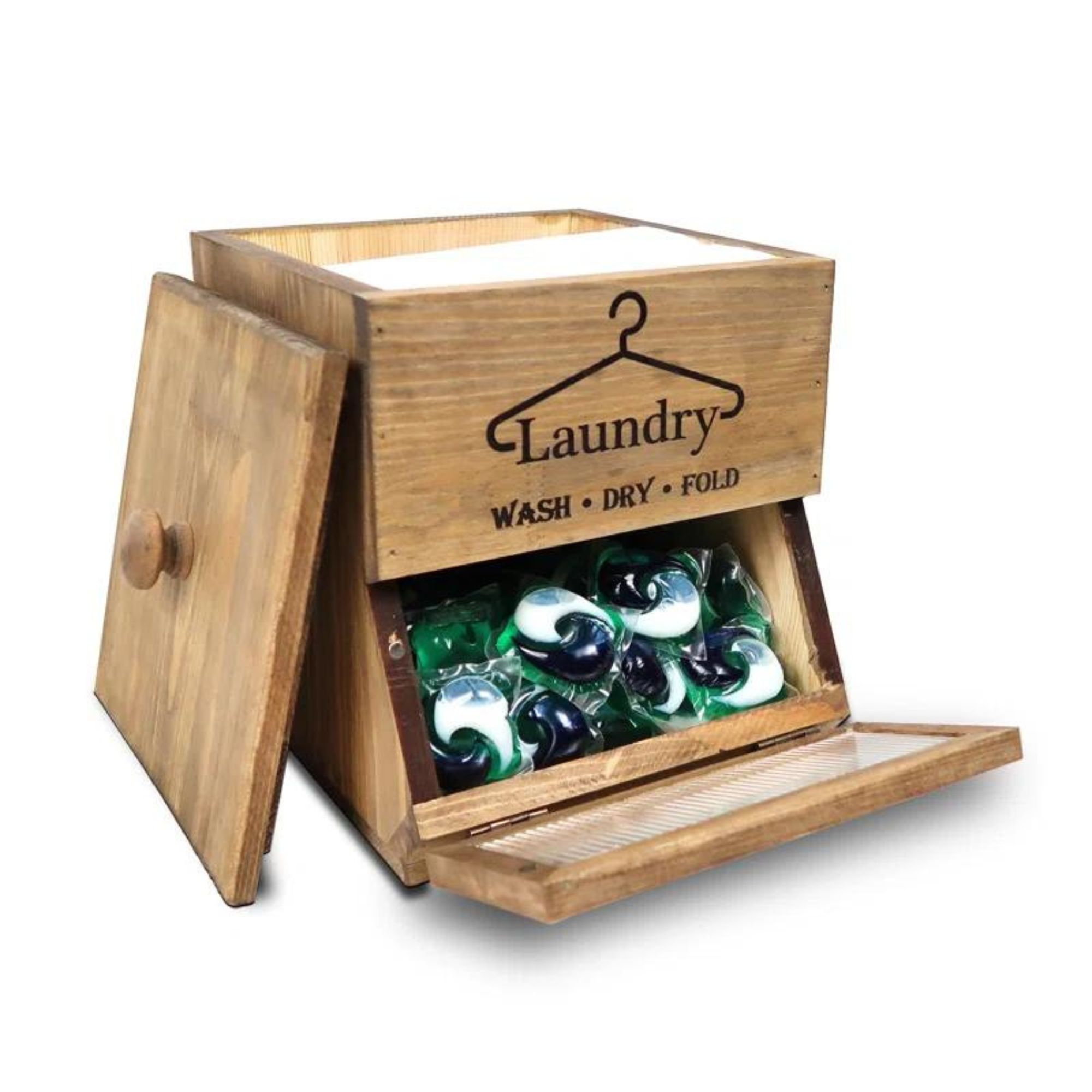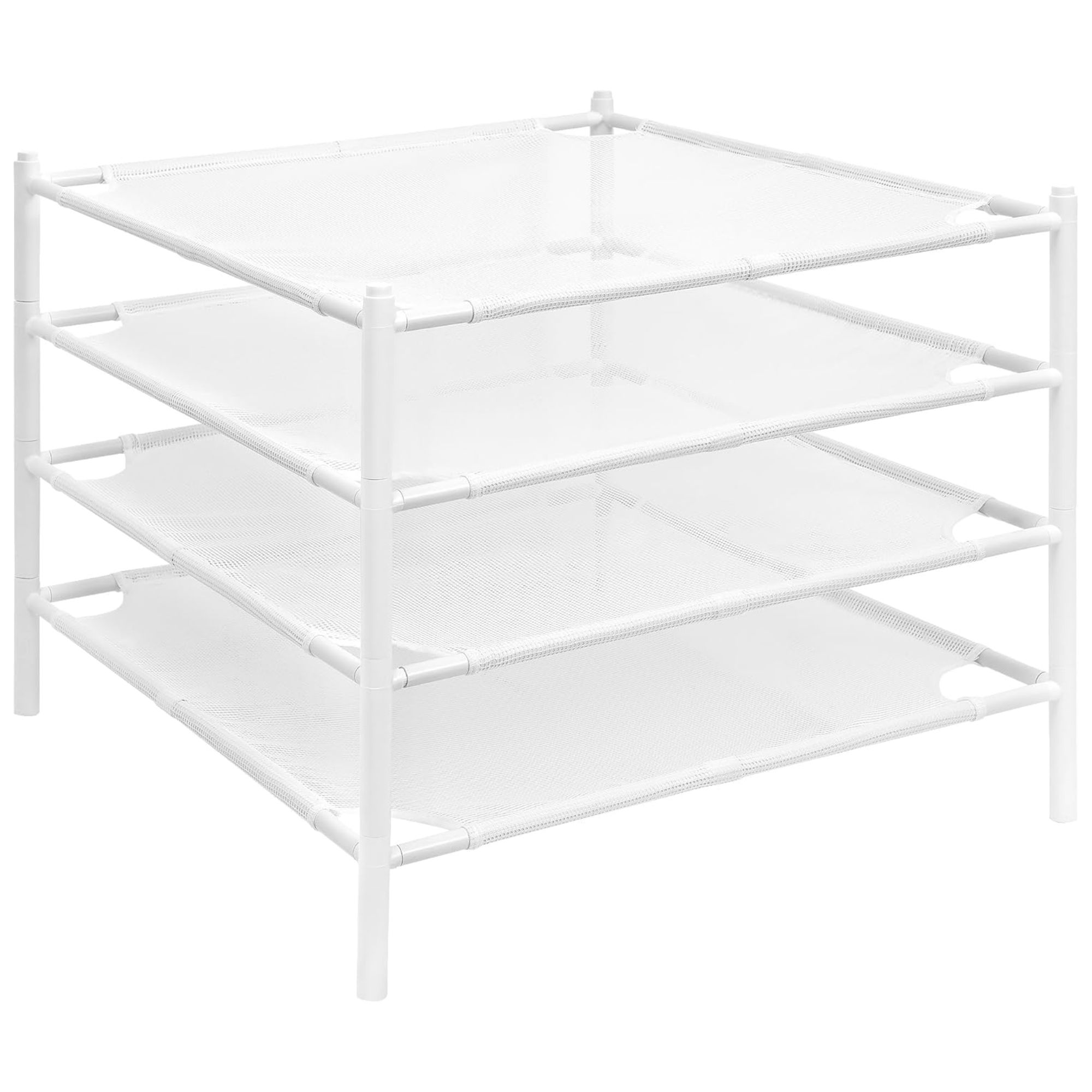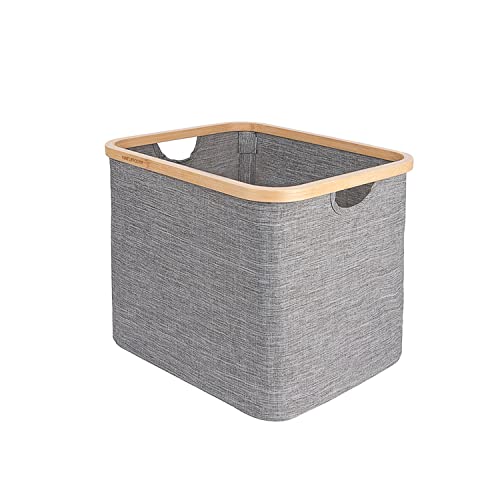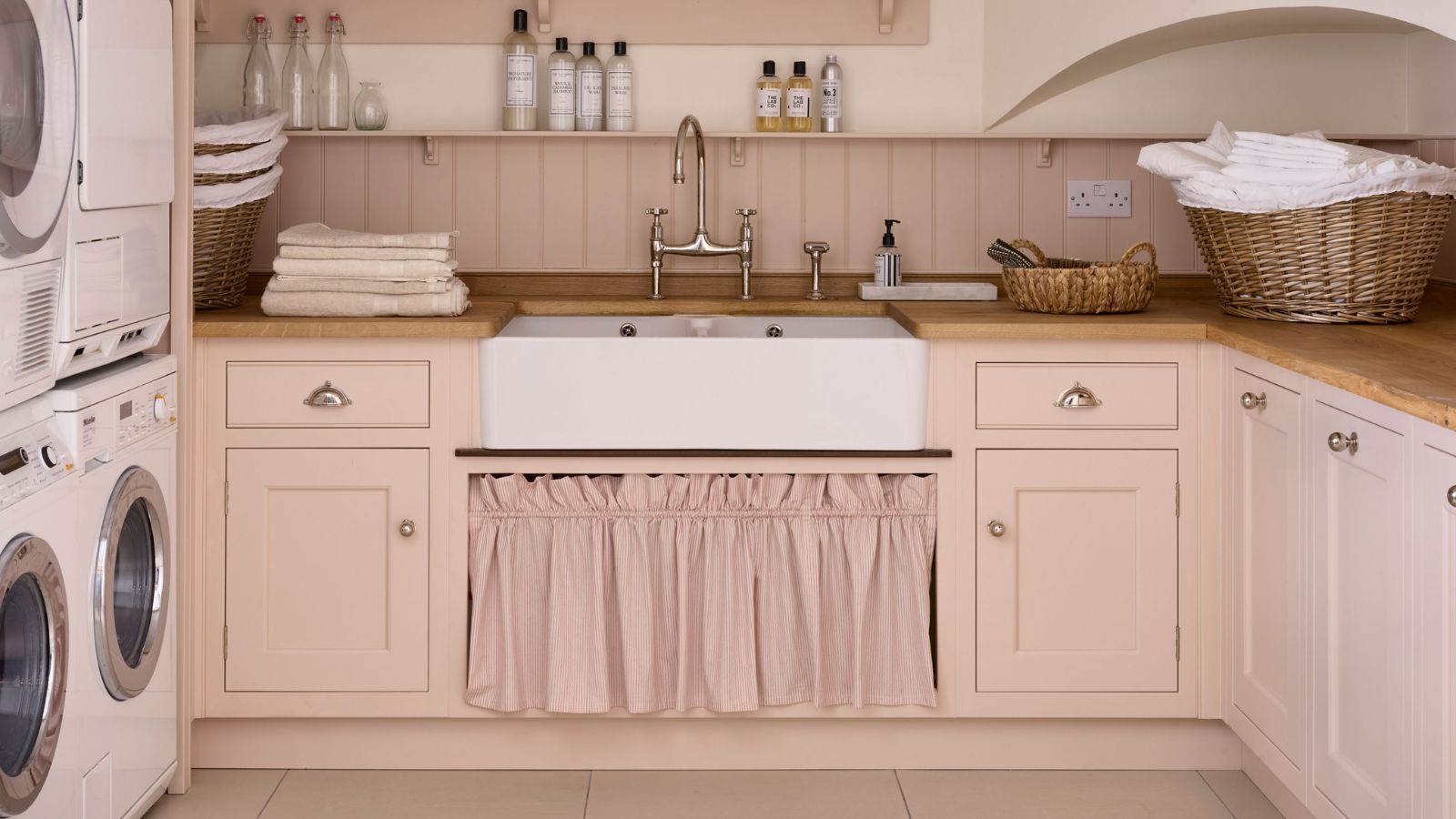
If you think you know how to do laundry, the likelihood is yes, you do. But if you want to get the most out of your efforts – and your clothes – learning how to do laundry the right way, will save you time, money, effort, and keep your clothing, bedding, towels, and linens in tip top shape for years to come.
So, whether you’re a laundry tip enthusiast, a reluctant laundromat regular, or you’re still trying to work out how to use your washing machine, this is our ultimate guide on how to do laundry like a pro, packed with top tips and expert advice.
How to do laundry like a pro
Before you get started, knowing how long washing and drying clothes should take will help you pinpoint any issues, be it your process or machine problems.
After all, many of us have wondered if those agonizingly long standard washing and drying cycles are doing anything extra for our clothes.
In reality, most clothes will actually be perfectly clean after a quick wash cycle, which is typically around 30-40 minutes long. This will also help you save energy when doing laundry.
Get to know your washer and dryer settings
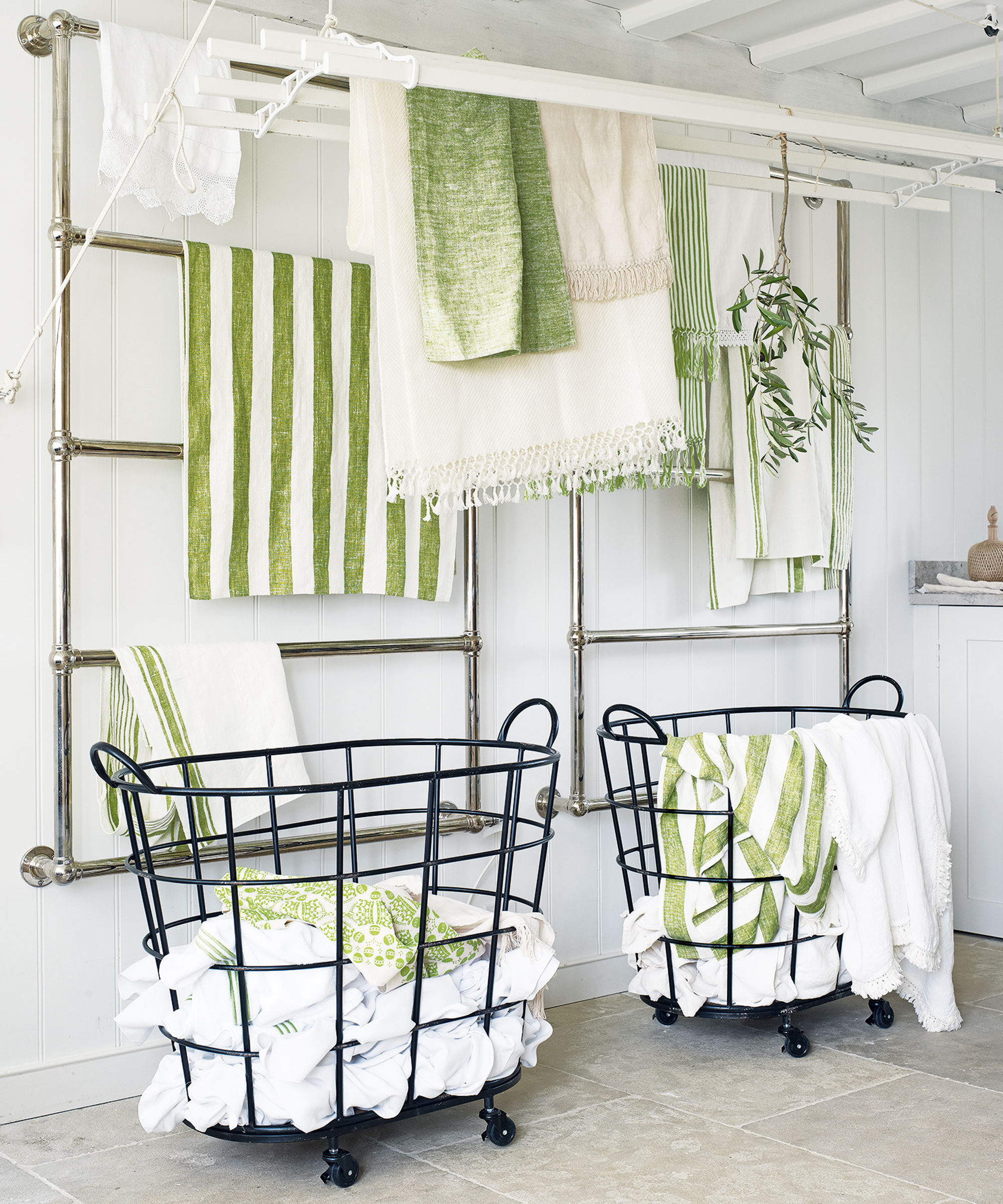
Separate settings are recommended for separate situations
Pre-set cycles on your machine include variations on the following: Cycle length, cycle speed or ‘spin,' and water temperature. Understanding the effect these have on your clothes and the cleaning process will ensure you’re getting the most out of your machine – and means you can adjust the settings if you want to.
- Delicate cycle: What is the delicate cycle on the washing machine? It's the shortest and most gentle cleaning cycle, and the closest you’re going to get to a ‘hand-washing’ effect. Reserve it for delicate items; washing cashmere, silks, wool, delicate synthetics, and so on. Most machines use cold water, but if yours defaults to warm, we’d advise overriding it.
- Normal cycle: This lengthy, high-speed cycle is primed for cleaning everyday laundry items – washing cottons and linens, as well as durable synthetics such as towels, t-shirts, socks, and underwear.
- Permanent press cycle: Shorter and more gentle than the normal cycle, this one uses warm water and a lower spin, and is recommended for synthetics. Its ultimate purpose is to reduce wrinkles in clothes, so it can be handy for washing clothes made of natural fibers that tend to crease easily – dress shirts and pants, for example.
- Heavy-duty cycle: Bulkier, more durable items, like washing towels, bed linens, heavy sports clothing, for example, will require a longer, hotter cycle to ensure they’re properly sanitized. Look out for a ‘heavy-duty’ setting on your machine.
- Pre-wash: If you're dealing with particularly dirty clothes, opt for a ‘pre-wash’ setting to give them an extra soak before their usual wash.
- Extra rinse: Tack an ‘extra rinse’ onto the end to ensure all dust and dirt has been flushed out, which is also handy if any household members suffer from allergies and lingering detergent residue sets off skin complaints.
- 'Rinse and spin': This removes moisture from items without the need for detergent – handy if you’re rinsing out bathing suits for beach towels.
Washing temperatures
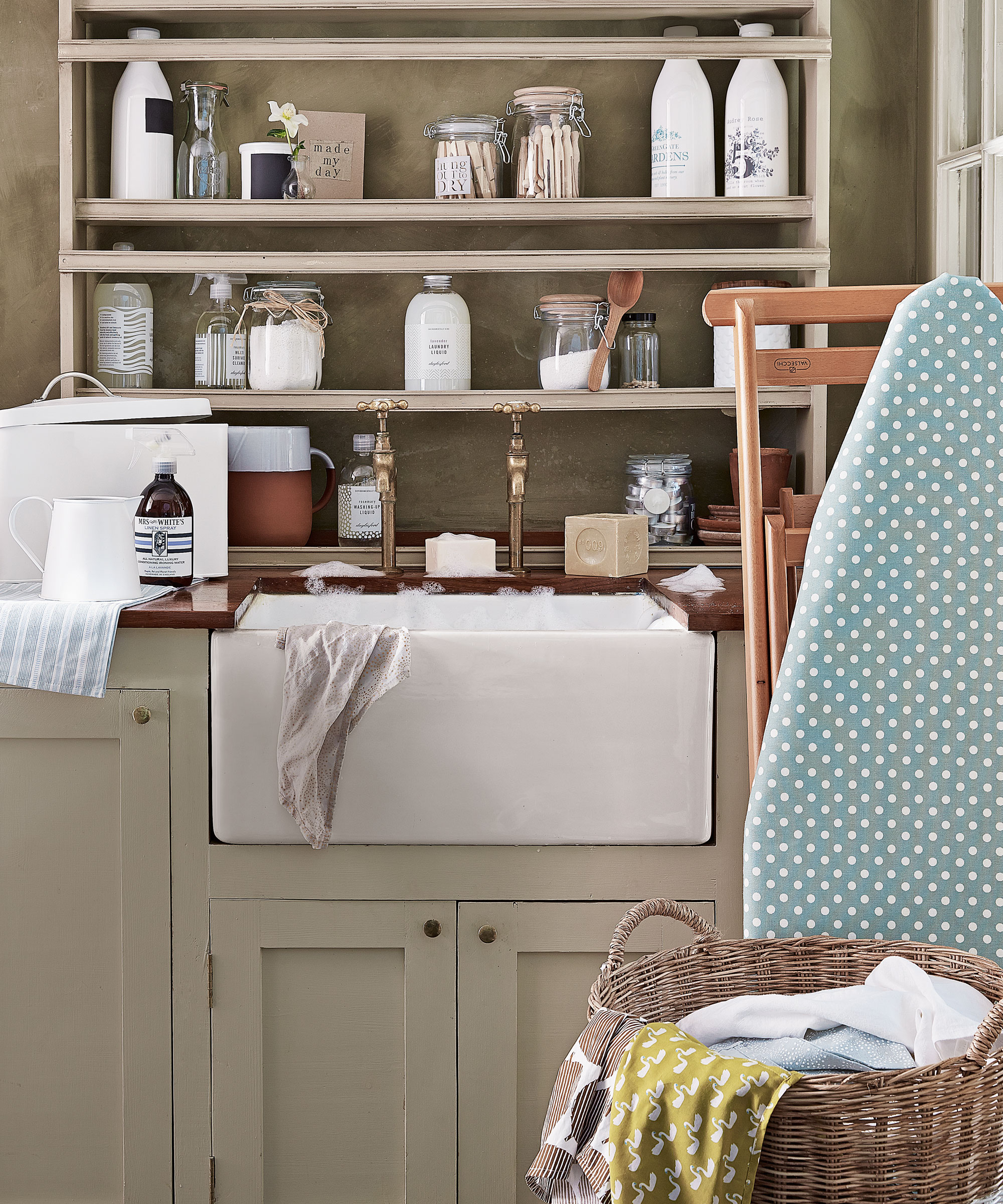
Some items must be washed at warmer temperatures for a thorough clean
You should always check the laundry symbols on your garments before washing, but as a general rule of thumb, the ideal temperature for washing clothes is between 68 and 104°F (30 and 40°C). Delicates like wool and silk will not tolerate heat as well, whilst towels and bedding need higher temperatures to kill bacteria.
Design expertise in your inbox – from inspiring decorating ideas and beautiful celebrity homes to practical gardening advice and shopping round-ups.
Items you should always wash in a hot wash
With such an abundance of laundry advice available, it can feel a bit of at task figuring out which items to wash at hot temperatures (that's 130 degrees Fahrenheit and up), especially without damaging them.
But hot washes certainly have their place and are brilliant for killing bacteria. There are the household items our pros recommend that need more sanitization than others:
- Bedsheets and towels: Bed sheets and towels are two of the most bacteria-laden items in your home, attracting bacteria, dust mites, and allergens, so washing them regularly (after every three uses is a good rule of thumb) at high temperatures is important to kill these microscopic invaders.
- Kitchen sponges: 'When we use kitchen sponges to wipe up food spills and then leave them sitting around damp, it can become a breeding ground for germs,' says James King, operations manager at DeluxeMaid. 'If not cleaned well, there's a contamination risk.' You can also clean your kitchen sponge by dampening in and putting it in the microwave for one minute, or in a regular dishwasher cycle.
- Whites: Whites and other light-colored items should be washed at higher temperatures to remove everyday stains.
- Rags or cleaning cloths: It's important to keep your cleaning supplies clean, and rags and clothes used for dealing with the dirtiest jobs in your home are no exception. 'Washing them in hot water ensures all the contaminants are removed, leaving them clean and disinfected, and your home will thank you for it,' says James.
- Heavily soiled clothing: Wondering how to remove mud stains from your clothing? It goes without saying, but it's usually best to wash heavily soiled clothing in hot water to kill germs and bacteria and reduce staining. This is where the pre-wash cycle will come in very handy and do a great job of loosening up tough dirt before the detergent and washer agitation comes in.
What temperature to wash dark clothes
When it comes to getting laundry done, getting the right setting every time for different laundry loads can be confusing, and you may be left wondering what temperature to wash dark clothes at to prevent fading.
After all, washing dark colors clothes the wrong way can lead to fading, with a bold decision to disregard washing instructions leading to a less-than-bold and vibrant wardrobe.
Therefore, you should always aim for a cool temperature – around 60-80ºF. 'Washing at cooler temperatures is better for your clothes too, as hot water is a known cause of clothes fading in colour,' explains Kathleen Bell, Smol's sustainable cleaning expert.
The question 'Should I was my clothes in cold water?' has been a common one over the years, with many people mistakenly believing that cooler water is not sufficient to remove dirt or bacteria from clothes. Fortunately, this could not be farther from the truth.
'Washing at the right temperature not only helps with energy-saving but can also help keep your clothes looking better for longer, too,' Kathleen continues.
Here's how to further prevent dark clothes from fading in the wash:
- Turn dark clothes inside out. 'Washing similar colors together can be a good idea to help prevent colors from fading,' adds Kathleen.
- Opt for a delicate wash setting
- Choose the right laundry detergent: If you are serious about keeping your dark clothing in its best condition, you may want to consider investing in a specific detergent, such as the Woolite Dark Care Laundry Detergent available at Amazon.
- Use a low heat setting on a tumble dryer, or choose to air dry: You may also want to learn how to dry clothes quickly to shorten the amount of time dark clothes and linens need in the dryer. Alternatively, consider harnessing the benefits of air-drying your dark clothes and linens – just make sure to keep your clothes out of direct sunlight as this is a natural and easy way to easily fade stains, and it has the same impact on clothing colors.
All prices were correct at the time of publication.
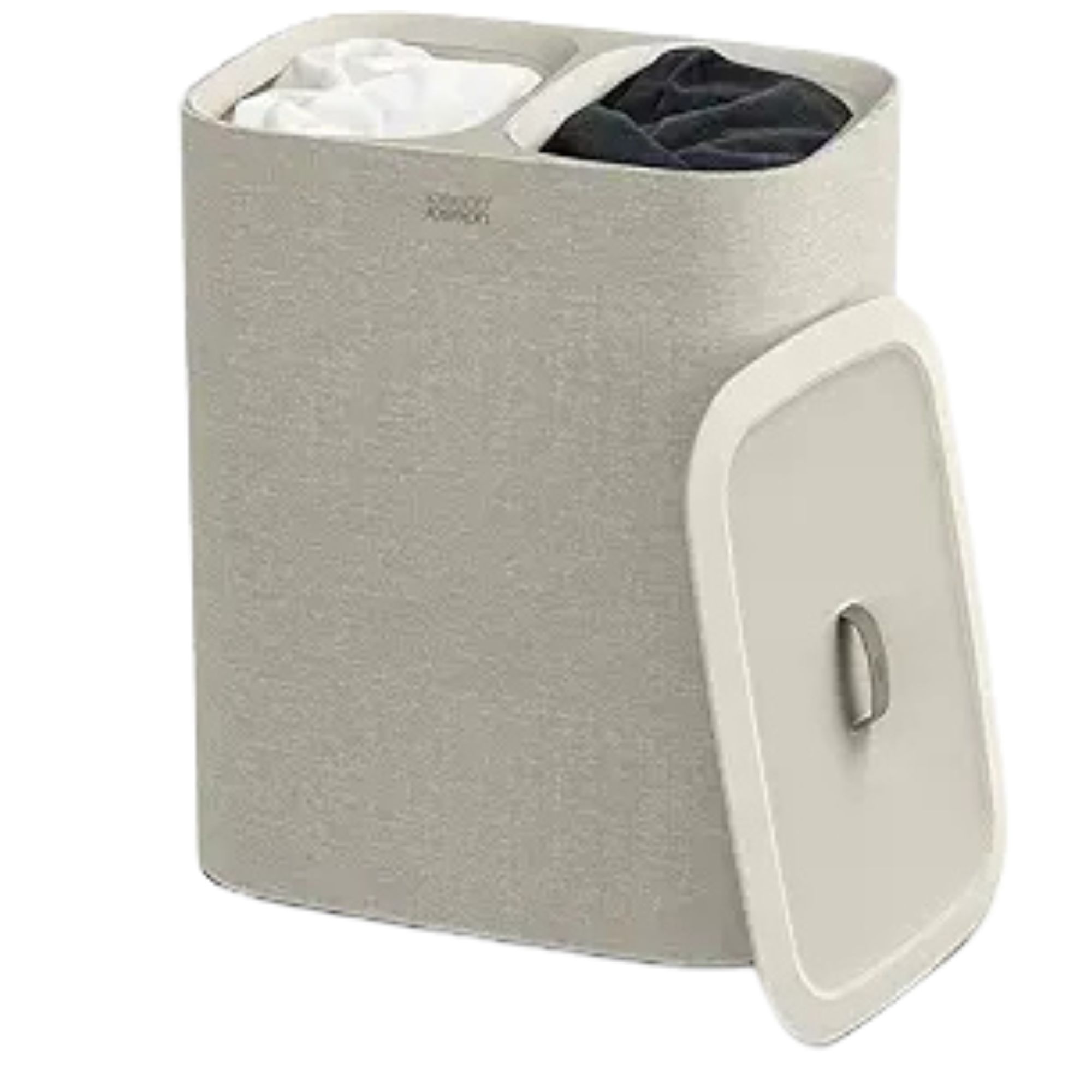
This Joseph Joseph laundry organizer is the key to unlocking the secret to quick laundry, and makes sorting items for warm and cold washes, and by color, easy.
Dealing with detergent and softener
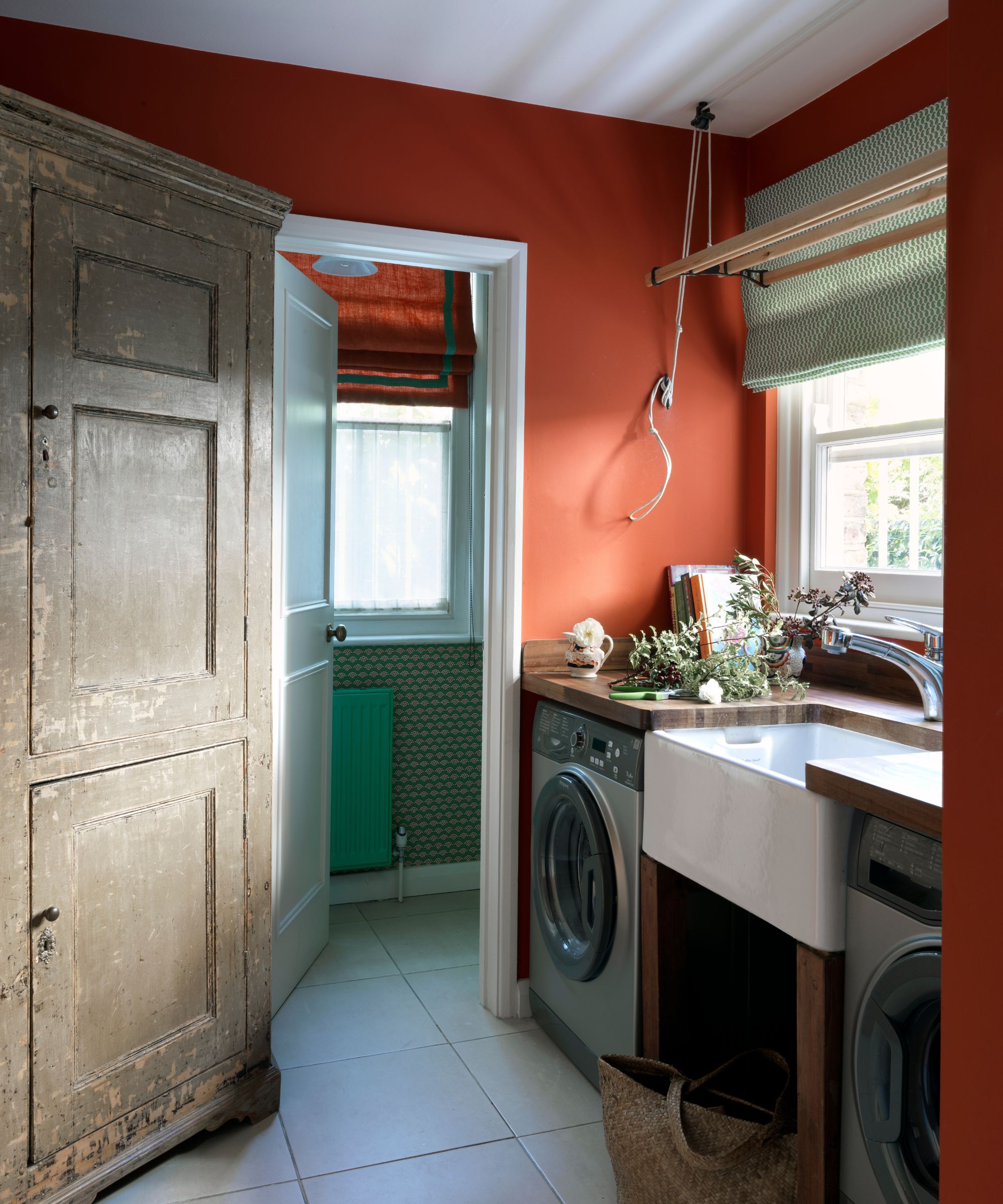
Getting your detergent and softener right for the specific material you're dealing with is the key to perfect laundry every time
Where to put detergent in the washing machine
It seems simple enough – throw clothes in the drum, add detergent, and hit start – but where do you put detergent in a washing machine?
Here's what the pros recommend:
- Liquid detergent: This should be put straight into the drum of your washing machine. Johanes Godoy, laundry and cleaning expert at Liox Clean, advises, 'This approach ensures the detergent dissolves properly and spreads evenly throughout the wash.’ This laundry detergent dispensing set, from Amazon, helps you get the correct amount of detergent every time to avoid waste. Modern detergents are very powerful and you don't need much to do the job.
- Powdered detergents: These should always go in the detergent drawer, marked with a 'II' on your washer. If your model does not have a detergent drawer, add the detergent straight into the drum of the machine.
- Laundry pods: These should be tossed in the machine before you add your clothes for washing.
- When using fabric softener in laundry: This should be added into the detergent drawer. For this, you are usually looking for the section of the drawer marked with a flower symbol. Skip softener on microfiber towels, as well as kitchen and bathroom towels, as it will coat their fibers and negatively impact their water-soaking abilities.
- Pre-wash detergent: Add this to your detergent drawer compartment, usually marked with an 'I'.
- Scent beads or boosters: This includes products such as the Downy Laundry Beads, from Walmart. Usually, they just need to be tossed into the drum before your detergent or dirty laundry is added.
Importantly, you should never wash clothes without detergent. 'Washing your clothes with only water may help you get rid of some surface dirt, but it will likely not be enough to wash out bacteria, odors, and stains, so it is not a tip I would recommend,’ explains Frej Lewenhaupt, textile expert, co-founder and CEO of Steamery.
Matt Connelly, CEO and laundry expert at IHateIroning, adds, 'The chemicals in detergents interact with water to efficiently separate the stains from the fibers of your clothes. Water alone cannot naturally rid your clothes of stains. It also helps to remove odors from clothes and give them a fresh smell.'
If you are looking to cut down on chemicals to be more sustainable at home, then there are some brilliant eco-friendly cleaning products available – or, if you are stuck in a last-minute laundry pinch, you could even try your hand at making laundry detergent yourself at home.
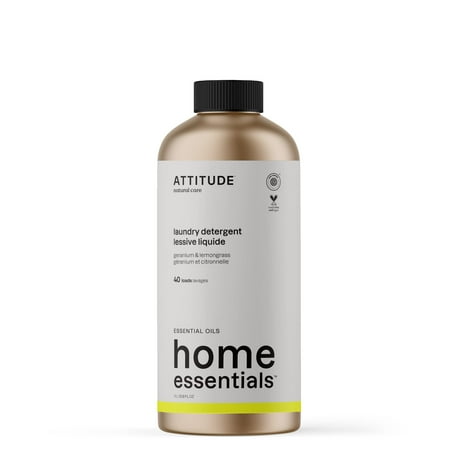
The Environmental Working Group has verified this vegan and cruelty-free detergent, meaning it meets the EWG's strict standards for health and safety. Geranium also smells seriously luxurious, so we couldn't recommend this product more highly.
Laundry pods vs liquid detergent
Which is better: Laundry pods or liquid detergent? With such a dizzying choice of products out there, it can be difficult to decide which to go for when doing your laundry.
The main pros of laundry pods are that they are:
- Convenient
- Easy to store
- Concentrated
- Offer better stain-lifting power
The cons are that they:
- Tend to be more expensive than liquid detergent.
- Tend to contain harsher detergents, leaving clothes less soft than liquids
- Are not suitable for delicates or wool sweaters
- Have limited fragrance options
In contrast, the pros of liquid detergent are that they:
- Are effective even in cold water
- Have many more options in terms of formulations
- Tend to have nicer fragrances
- Have more specialized options for fabrics and woolens
But the cons are that they:
- Are often not as concentrated as pods
- Are usually messy, especially if you have a large, unwieldy bottle
- Can be more wasteful as it's easy to use more than necessary
Therefore, overall, neither laundry pods nor liquid detergents are inherently ‘better’. It all depends on what you wash the most, how often, and how your laundry room is organized.
When you should never use fabric softener
For such a widely used product, fabric softener is one of the least understood of all laundry products. While many of us pop a small amount in every laundry cycle, or use combined pods, experts warn this could be damaging both our clothes and our washing machines, with some materials reacting badly to the film coating softener leaves behind – even after a rinse cycle.
This doesn't mean you have to cut it out altogether, however. It just means working out the times you should never use fabric softener and being strategic with your laundry loads. Here, experts share the items to keep far away from the softener:
- Towels and microfiber cloths: Given that many of us want to make towels soft again when doing laundry, it would make sense to add a product that literally has ‘softener’ in the name, right? However, it could be doing the opposite. Not only does this make your towels and cloths less effective at soaking up water as it coats the fibers, but it can also make them feel rough and scratchy on your skin.
- Gym wear: When sorting clothes for laundry, you should separate your gym wear for a laundry cycle free from softener, as it can affect their stretch and wicking properties.
- Flame-retardant clothing: One of the most dire laundry mistakes to avoid that you are probably making with fabric softener is using it on flame-retardant clothing, as it can potentially compromise safety.
- Cloth diapers: Like towels, cloth diapers and washable sanitary wear can be damaged by fabric softeners, as it reduces their absorbency.
Mistakes you're making with laundry pods
Laundry pods revolutionized the dreaded chore of laundry since they’re simple, easy to use, and effective. But are you using them correctly? These are the pod pitfalls to avoid:
- Not loading them in correctly: Always put them directly in the drum before loading your clothes.
- Using the wrong amount: Pods are super concentrated, and extra detergent doesn’t mean extra clean – in fact, it might just be leaving residue all over your clothing. Always follow the dosing instructions on the detergent package.
- Using pods with delicate or expensive clothes: Using pods with these materials can lead to stains. Instead, hand-wash your delicates, or take them to a dry cleaner.
- Unwrapping or cutting them: They're designed to dissolve in water, and there's no need to get harmful chemicals on your hands.
- Storing them incorrectly or handling them with wet hands: They should always be kept up, closed, and safely away from pets, children, and other vulnerable family members.
- Overstuffing your machine: If your washing machine is overloaded, your pods can’t work effectively to clean stains off your clothing.
- Using hypoallergenic or sensitive skin pods to remove tough stains or heavy soils: These don't tend to be as effective at removing stains or cleaning heavy soils.
Common laundry problem troubleshooting
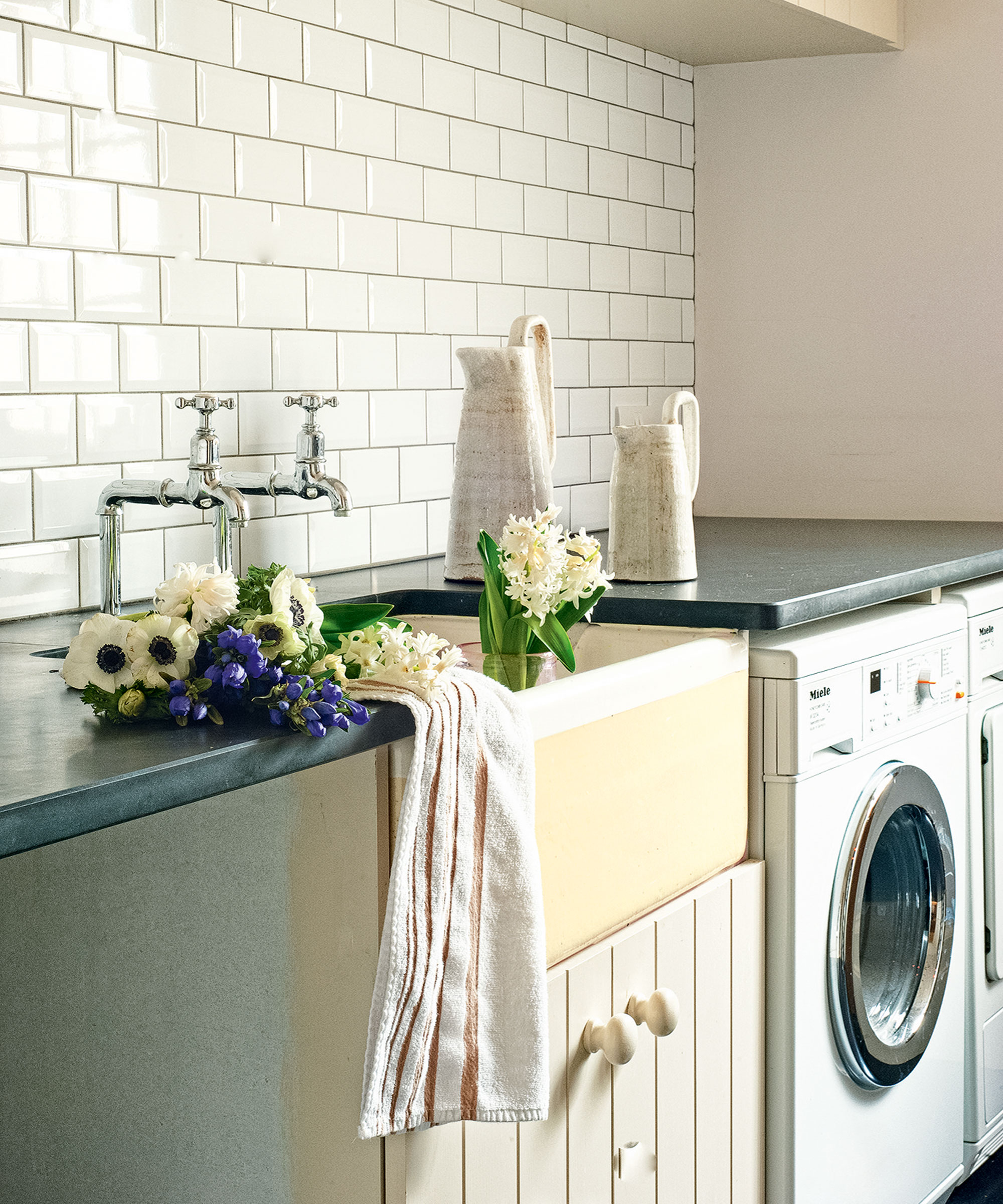
Protect your items from pills, static, sour smells, and rough textures
How to prevent lint balls on clothing
There's nothing worse than putting on a sweater you've worn just a few times, only to see lint balls developing around the cuffs or under the arms. This common problem makes our clothing look worse for wear, even when the item might be relatively new – and once pilling starts, it can be hard to stop.
As well as knowing the best ways to remove lint from clothes without damaging them in the process, laundry experts recommend these precautionary measures to keep garments looking their best:
- Look for detergents with cellulase: Laundry detergents contain enzymes that help to break down stains. Next time you are shopping for laundry detergent, check the ingredients for an enzyme called cellulase, which is known to loosen and remove lint balls in the washing machine. We recommend the Persil Original Everyday Clean Liquid Laundry Detergent, available at Amazon.
- Use dryer sheets: 'Lint balls and other fuzz and fibers often get stuck to clothes, especially in the dryer,' says Sammy Wang, senior scientist at Bounce. 'That's because, in the dryer, heat and tumbling action create static cling, which can make clothes stick to each other and other fibers,' she says. For this, you should use a dryer sheet with each suitable dryer load, and clean your lint trap regularly. You can also remove static from clothing with the Static Guard Fabric Spray available at Amazon.
- Hand wash more often: Whether or not the label says they can be machine-washed, delicate items will be better off washed by hand and dried on flat surfaces than being repeatedly thrown into the washer and dryer.
- Use mesh bags: To stop excessive rubbing of rougher fabrics, such as denim, on softer or delicates in the same wash cycle, load your delicates into mesh bags, available at Walmart.
How to get dingy whites white again
When a T-shirt or towel has turned an unappealing shade of gray, there are various steps you can take to make your whites white again. Here's what the experts recommend:
- Use white vinegar: Add 1/2 to one cup of white vinegar, at Walmart, to the washing machine during the rinse cycle, which will remove bacteria and germs, and break down the buildup that causes white clothes to look dingy.
- Try baking soda: Add 1/2 cup of baking soda to the washing machine along with your detergent. The alkalinity of baking soda will help neutralize acids in the water and remove dirt and stains.
- Try Vanish: Natural options are always preferable, more affordable, and a way of being more sustainable at home. However, if natural whitening agents just aren't cutting it, it's time to try a commercial whitening booster. Homes & Gardens' content editor Chiana Dickson recommends using some Vanish Gold White Powder, available at Walmart.
- Use hydrogen peroxide: Add one cup of hydrogen peroxide to the washing machine during the wash cycle. The oxygen-based bleach properties of hydrogen peroxide can help remove stains and brighten whites. As a natural whitening agent, it's a good alternative to bleach.
How to make towels soft again
Knowing how to make towels soft again allows you to create the wonderful feel they had when they were brand new, restoring the pile that spells luxury after a bath or shower.
But, washing towels – and putting them through the dryer – can leave the fibers of towels stiff and scratchy over time, and as you should never use fabric softener on towels, which reduces their absorbency by coating the fibers, you can't rely on that, either.
Here's how to soften scratchy towels:
- Soften with vinegar: Like restoring whites, the best, expert-recommended way to soften towels that have become scratchy is to select the best washer and dryer settings for softness, and wash towels with vinegar.
- Avoid these common laundry mistakes: In order to keep towels at their fluffiest, it’s important to wash towels the right way. The general rule? ‘Make sure to wash your towels separately from your other laundry to avoid any color or fibers transferring onto your beautiful pristine towels,’ says Lucy Ackroyd, head of design at Christy, inventors of the towel as we know it today. Bear in mind, too, that new towels shouldn’t be washed with clothes, nor with those towels you already own. It's also crucial to ensure you don't use bleach in laundry when washing towels.
- Check the label: For soft, fluffy towels, pay attention to the wash temperature, checking the laundry symbols on the labels of all towels before they go into the machine.
- Shake towels out: Shaking your towels is a simple, quick step in your washing routine that can have a huge impact on their softness, loosening the fibers of the fabric and making your towels super plush and fluffy.
- Mix up your drying methods: To keep towels soft, don’t dry them on radiators; this will lead to a rough finish. Instead, alternate between your dryer and line drying.
- Store towels with care: Once you’ve perfected the washing and drying routine, the final step in keeping towels soft is storing them correctly. You can use a towel rail or rack, roll towels or simply fold towels.
Why do my clothes smell sour after washing?
When laundry comes out smelling musty, it can be hard to put a finger on why. Here are the reasons our pros suggest:
- They took too long to dry
- Your washing machine is dirty
- You used too much detergent
- Your clothes sat too long before washing
- You overloaded your washing machine
- You didn't take your laundry out soon enough – you should never leave clothes in the washer overnight, particularly if you want to avoid a build-up of bacteria, mold, and mildew. Once you have washed your laundry, it is important to dry clothes quickly, so aim to remove items as soon as possible after the cycle ends
- There's lingering bacteria
- Hard water
Washing delicate fabrics
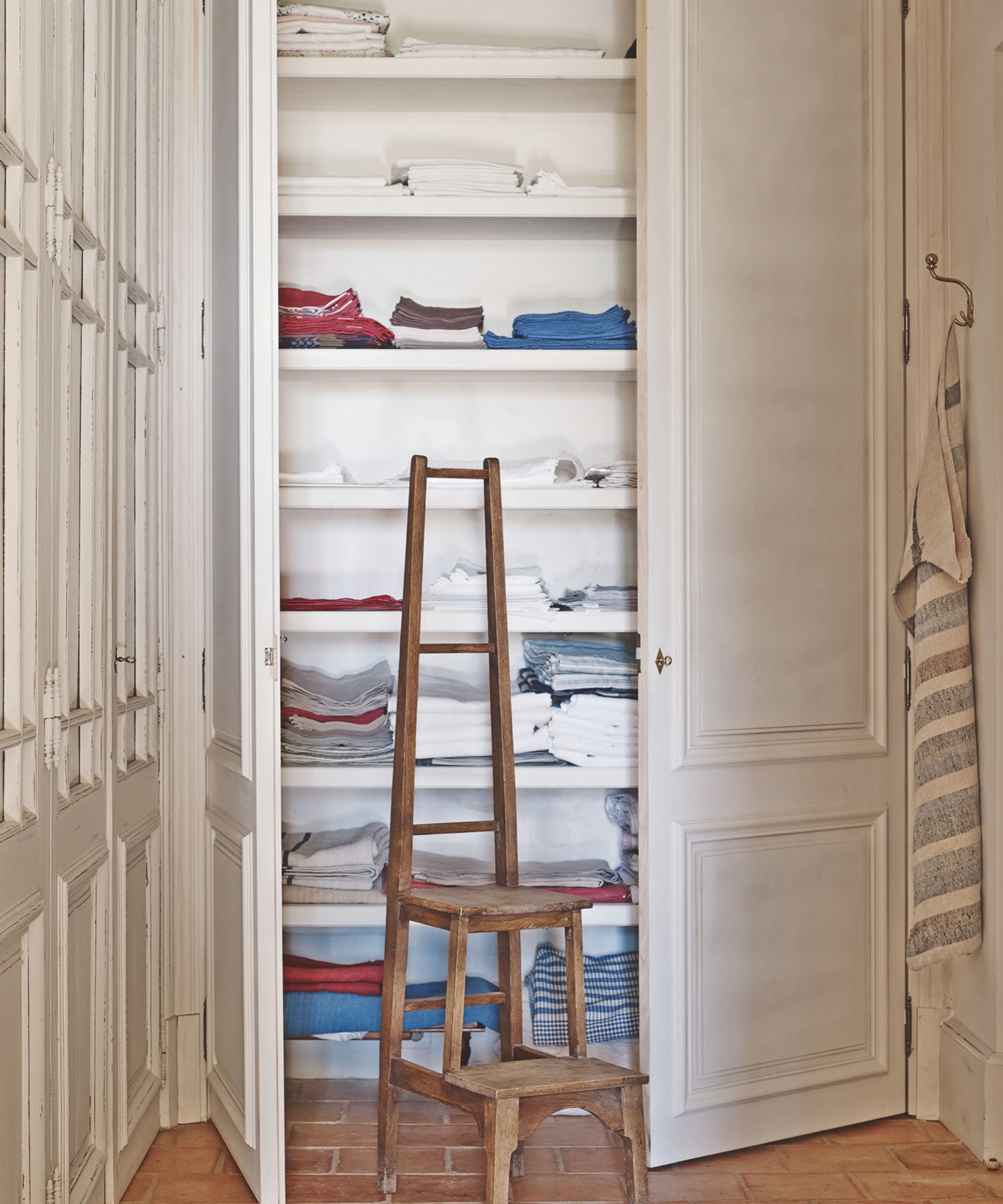
Hand-washing clothes is a great way to protect your garments from damage
How to handwash clothes
It's important to know exactly how to treat those items that need a little more TLC. Even if you don’t own much in the way of ‘delicate’ clothing, it's handy to master; for smaller loads, when traveling, for heavily stained garments, or as an alternative to costly laundromat trips.
Here's our simple step-by-step guide:
- Check the care label: Before doing anything, read your clothing labels. If the laundry symbol is a hand in the water, that means it’s safe for handwashing. However, be aware that if there’s a cross over the twisted symbol, you shouldn’t wring the item at any point.
- Pre-treat stains: Go through each item and check for stains. If any are found, use a spot-treating solution, such the Tide Stain Remover for Clothes available at Amazon.
- Fill the sink: Fill it with warm water, unless the washing instructions state otherwise, and pour in your laundry detergent. Add a small amount designed specifically for the type of item you’re washing
- Swish items – gently: Submerge items in the water and gently swish until they’re saturated. While it’s okay to wash more than one item at a time, as long as they’re similar colors, don’t overcrowd the sink.
- Leave to soak: Leave the items to soak in the water for about 15 minutes or so, a little longer if they’re particularly stained.
- Rinse and repeat if necessary: Drain and refill the sink with clean, cool water. Rinse out the items, swilling gently. If the water is still sudsy at the end, repeat the process until it remains clear.
- Dry: Your clothes are now ready to dry. Remove them from the water, gently press the water from them, then lay them flat on a dry towel. If they required hand-washing in the first place, chances are they’re not going to be suitable for a dryer, so air drying is your best bet. Hanging them soaking wet can cause them to lose their shape, so leave them on the towel to begin with – you can place another one on top to help speed up the process – then lay them across a large airer to dry, away from direct sunlight.
How to handwash wool
One material that particularly requires extra care when hand-washing is wool. Luckily, the process is easy once you know how:
- Always use specialized wool conditioner: It is best to invest in a wool wash, such as the Woolite Delicates Hypoallergenic Liquid Laundry Detergent available at Amazon, so that any residue doesn't risk damaging the wool fibers as much as a regular detergent might. What’s more, wool wash leaves wool far softer than a traditional detergent and can even help to make a wool sweater less itchy, making it a win-win.
- Soak, don’t scrub: Scrubbing wool sweaters will make the material pill. Instead, soak your woollen garments in a mix of warm – not hot – water and the directed amount of detergent to freshen them up without damage. It's best to agitate your wool sweaters occasionally over 10 to 15 minutes, so the detergent won't settle, and all the fibers are covered. After soaking, rinse the fabric out under running lukewarm water until you can't feel the oily remnants of detergent anymore.
- Dry flat with a dehumidifier: First, squeeze as much water from your garment as possible, but never wring it – this will cause stretching and leave your wool sweater misshapen. Then, lay it over an empty clothes airer, like this Clothes Drying Rack available at Walmart, with a dehumidifier underneath. The dehumidifier will help to draw moisture out while blowing dry air over the sweater, helping it to dry more quickly and preventing musty odors.
If you need to, always remove stains from woollen garments before hand-washing as usual. And, if you're wondering how often to wash your sweaters, aim for every five to ten wears.
Making laundry smell nice
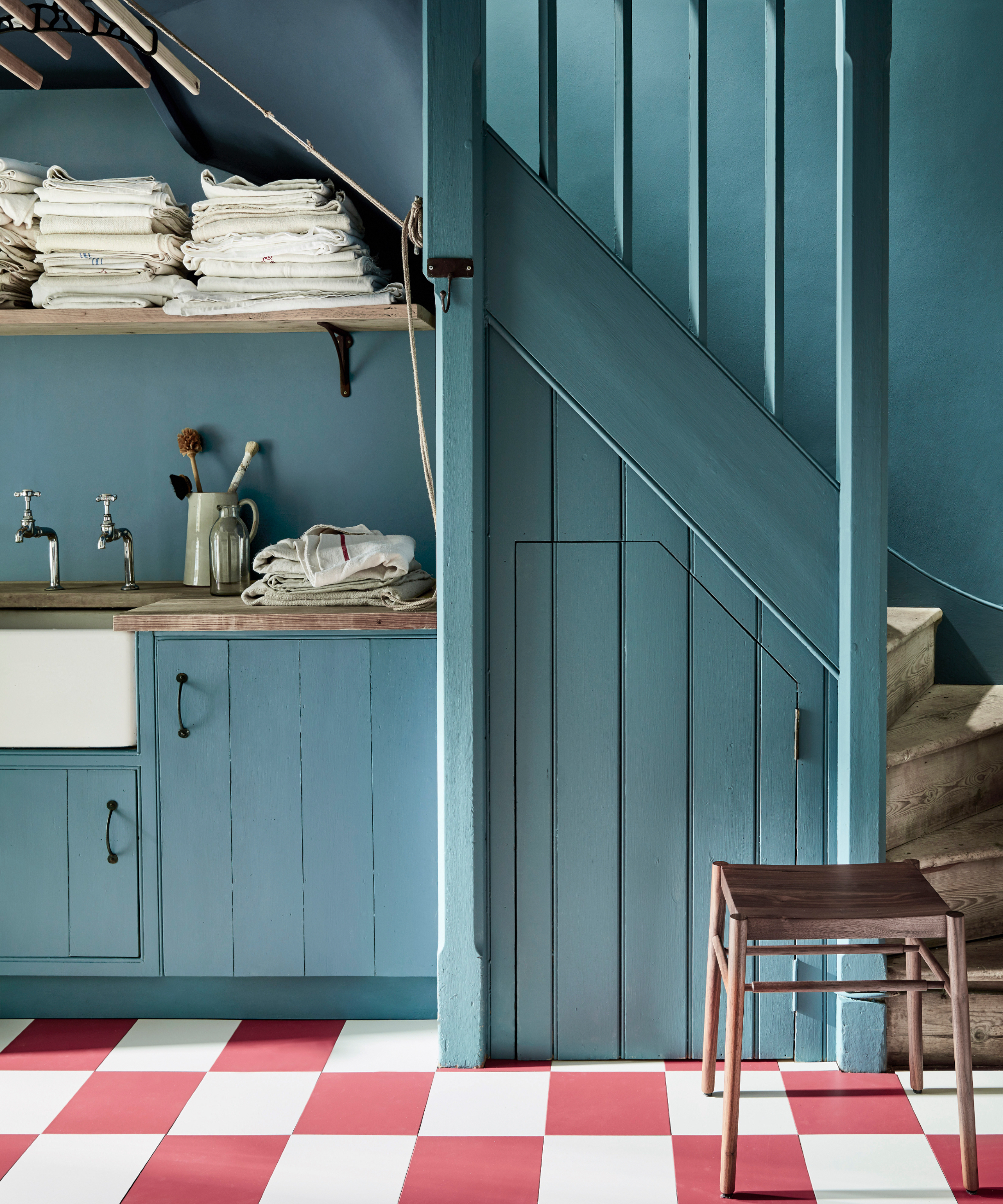
Enjoy a fresh smell that lasts
How to keep laundry smelling nice beyond laundry day
That fresh laundry scent is one of the very best. However, this fresh aroma doesn't usually last very long on clothes and linens.
So, how do you keep laundry smelling nice beyond laundry day? This is what the pros recommend to make laundry smell better and keeping yours fresh for longer:
- Use high-quality laundry products: You wouldn’t buy a cheap perfume and expect to still smell it on your wrists 10 hours later – so don’t expect the same from cheap laundry detergents.
- Store in a clean, dry place: One thing people who are good at laundry always do is store their fresh clothes and linens in clean storage ideas. This is because putting your fresh linens in dusty, musty under-bed storage idea, for example, is a surefire way to dampen the fresh laundry smell. If you are looking for a comforting DIY, you can make lavender sachets for closets and dressers.
- Use linen mists: Linen sprays are not only used to make your home smell nice. They can also help to freshen up your laundry and help it retain its fresh ‘just-washed’ scent beyond laundry day. You can mix up a DIY linen spray in a spray bottle, available at Walmart.
- Use an odor buster such as Borax: There are several secret laundry ingredients you can add to your washing machine during a cycle that will keep your clothes smelling fresher for longer. One example is Borax for laundry. James King, operations manager at DeluxeMaid explains, ‘Use half a cup of borax [available at Walmart] and toss it into your washing machine along with your regular detergent for a nice, fresh scent. It’s especially handy for those gym clothes or towels that seem to hold onto odors.’
Folding laundry

Take the stress out of your laundry folding by mastering these tips
Folding laundry can feel like the most tedious part of doing chores. But with a few clever tricks and a slight shift in approach, this everyday task can become faster, simpler, and even satisfying.
We’ve gathered some tried-and-true tricks from home organization experts who love making laundry easier:
- Fold straight from the dryer or rack: One of the biggest laundry time-wasters – and stress inducers – is letting laundry pile up – resulting in what should have been a five-minute folding job becoming a full-blown laundry project. Instead, start folding as soon as clothes are dry, cleaning expert Vanessa Bossart at Green Terra Cleaning suggests. Chasing perfection? Invest in a simple laundry folding board from Amazon to keep everything even and make folding even simpler.
- Sort before you fold: Folding without sorting through your clothes first is a recipe for chaos. Shirts, socks, and towels each require a different technique, and constantly switching between them slows you down and breaks your rhythm. Instead, take a few minutes to sort the laundry into categories before you fold. If you’re doing laundry for multiple people, sort by person as well. Use small baskets from Target to keep everything organized.
- Learn the 'Retail Fold': Ever noticed how clothing in stores looks so effortlessly neat and uniform? That’s thanks to a set of simple, fast-folding techniques designed for speed and presentation. You don’t need a retail background to borrow a few of those tricks. For shirts, try the 'retail fold': lay the shirt face down, fold the sides in toward the center, sleeves folded back, then fold from the bottom up into a tidy rectangle. With some practice, you can do this in seconds. Gayle Walker, Marie Kondo organizer at Life Doula, adds, ‘Even better, experiment with the file folding method – the technique made famous by Marie Kondo. This method allows you to store folded clothes upright in drawers, like files in a cabinet. It saves space, prevents clothing from getting buried or messy, and makes it much easier to find what you need without disrupting the entire drawer.’ Really tight on time or space? There is an air-folding method that keeps the process simple.
- Make it part of your cleaning routine: Set a folding schedule, such as every Sunday evening, and stick with it. The key is consistency. You can also hack your brain to make chores easier, by pairing it with your favorite TV show or music. We have a chore playlist you can try.
Laundry room essentials
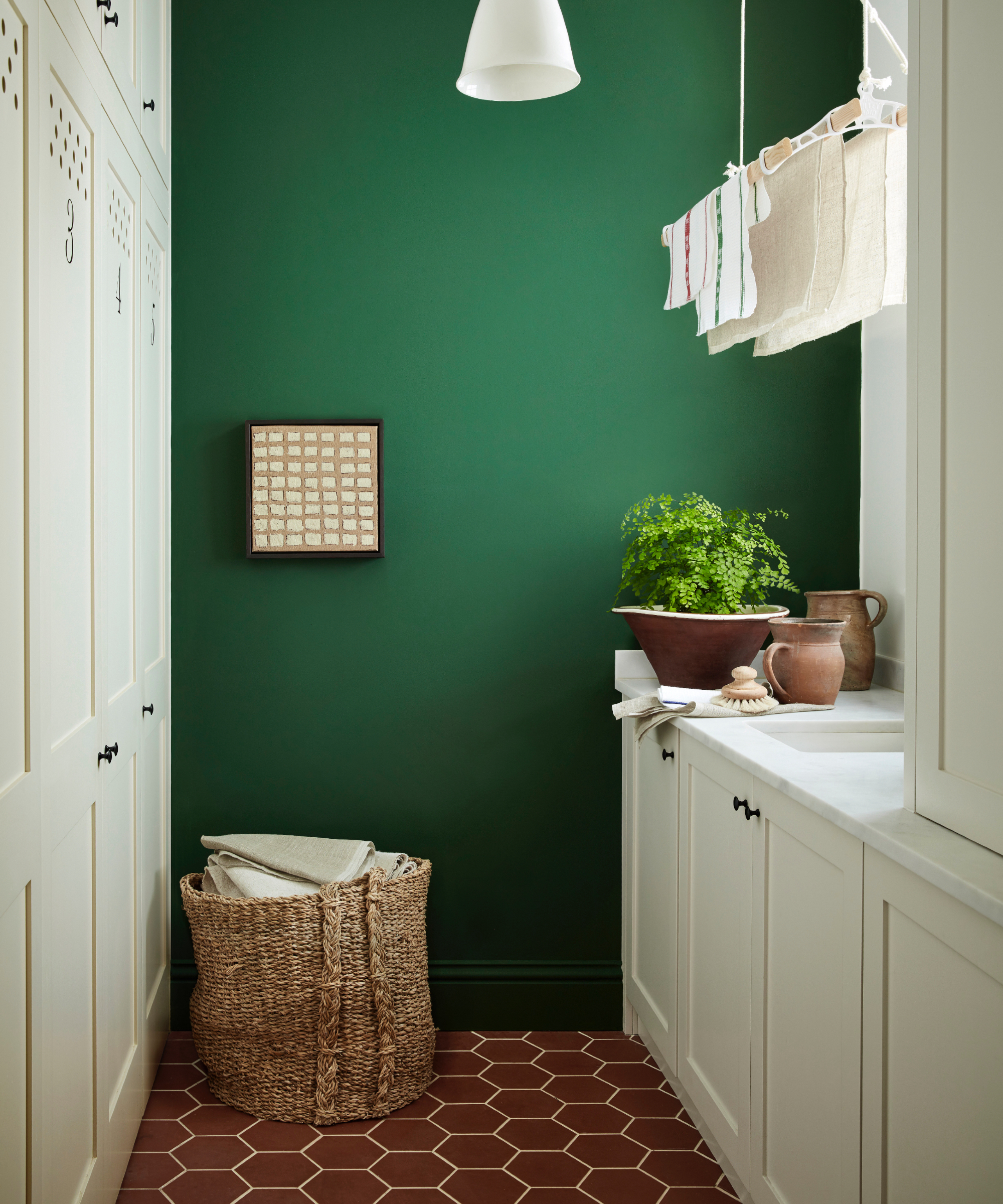
From sparing you from stains to freshening up musty odors, these laundry products are essential
With so many laundry products on the market, it can feel overwhelming to pick the best option. As a result, we often grab our usual detergent and softener and call it a day.
However, when it comes to doing laundry, the types and quality of the products we use can greatly affect the results. Knowing which products to choose – and which to avoid – is key to ensuring whiter whites and softer sheets.
These are the laundry room essentials you need:
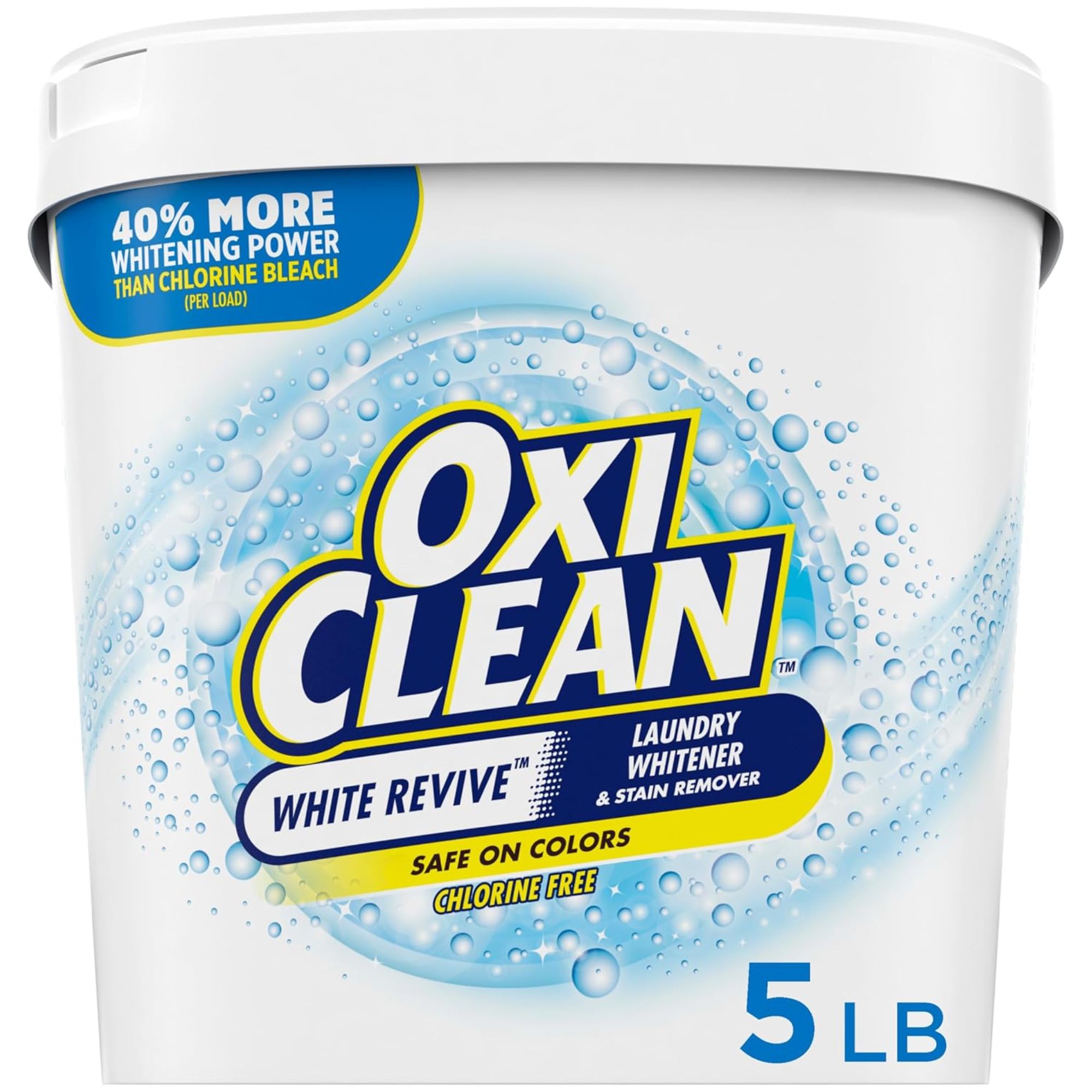
Pre-treating your stains is the best way to ensure that the mark comes out completely when you launder the item – especially when getting a stain out of a white shirt. As such, it helps to have a powerful stain remover on hand to break down stubborn marks before they set in.
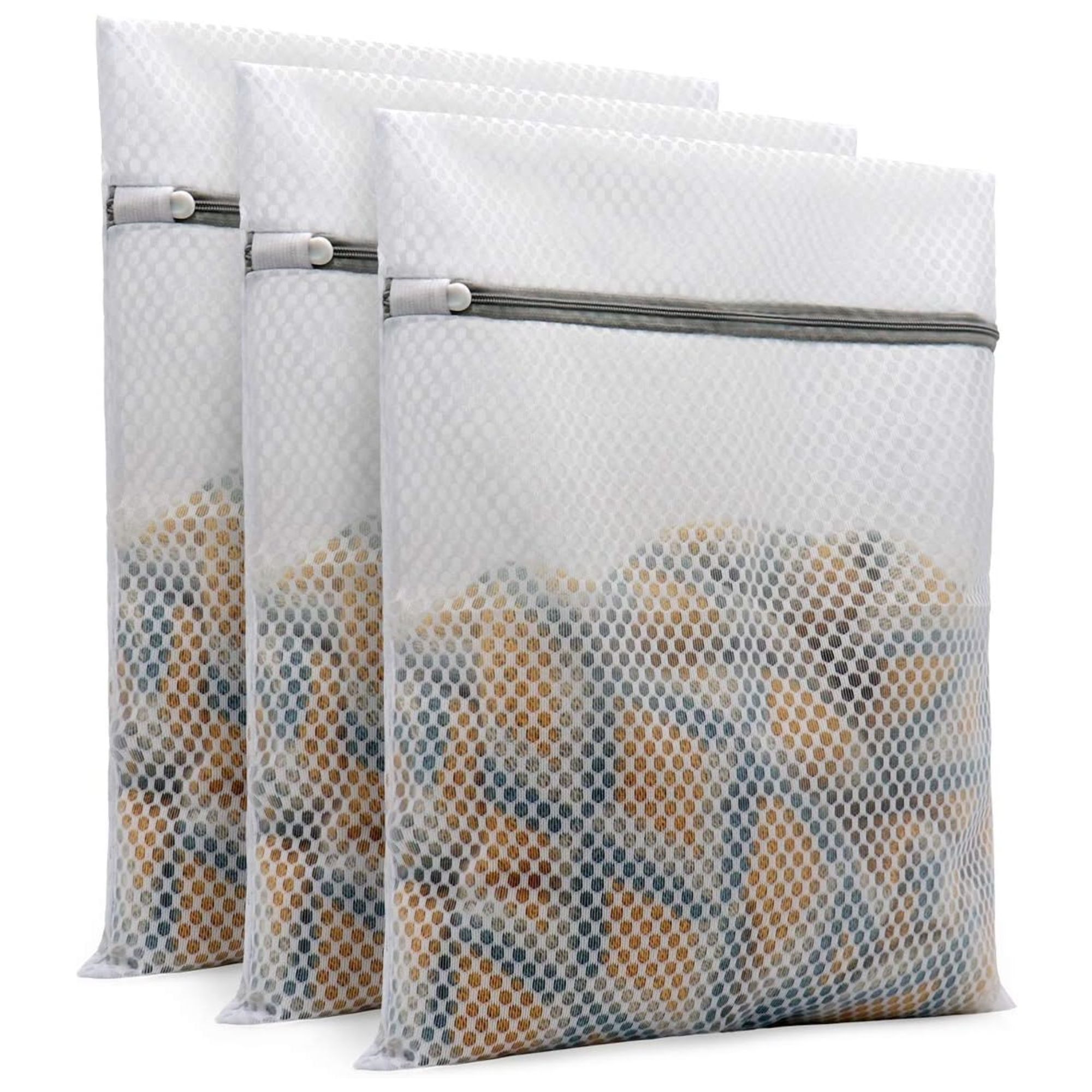
These heavy-duty honeycomb mesh laundry bags are specially designed to wash delicate clothes, reducing wear and tear in washing machines and dryers.
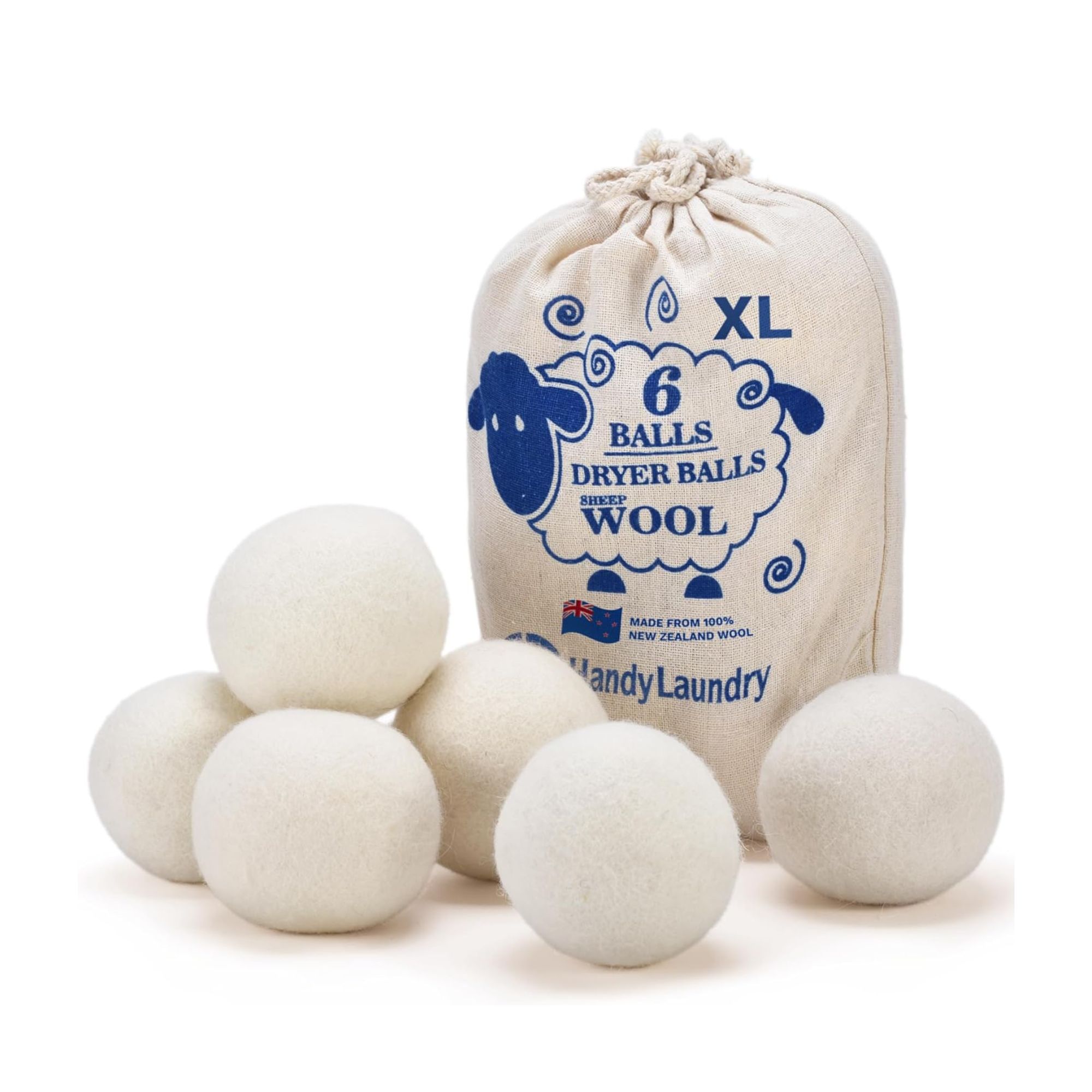
Using wool dryer balls saves time, money, and energy during your laundry cycle. Use three dryer balls for small to medium loads, and five to six for large loads.
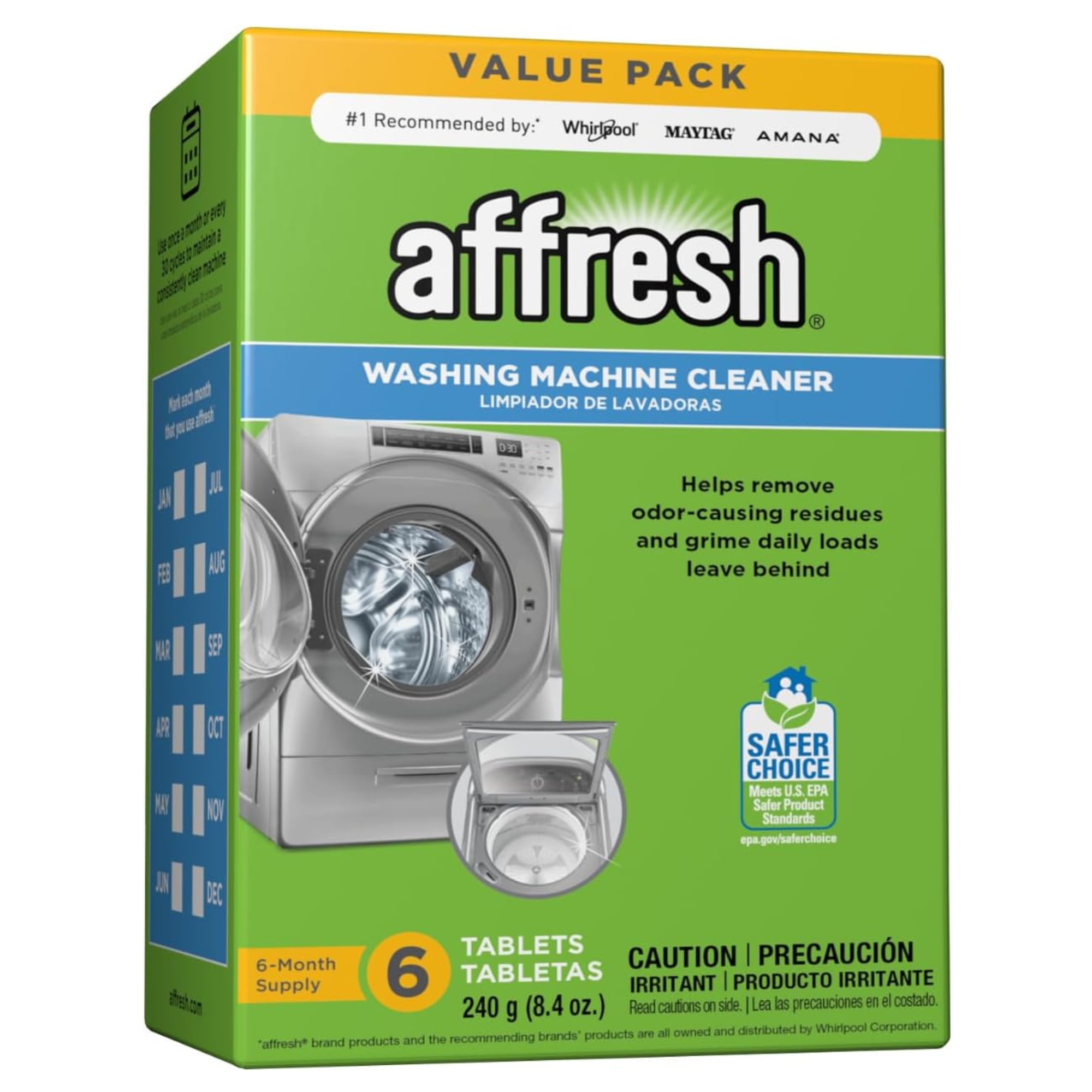
It is not just the products used to clean your clothing that are essential, but your washing machine, too. Cleaning a washing machine with a dedicated product is essential to prevent musty odors on clothes and stop mold on rubber seals. Simply toss one of these tablets into your washing machine drum and start a self-clean cycle. If your machine doesn't have a self-clean option, just choose a heavy cycle with hot water.
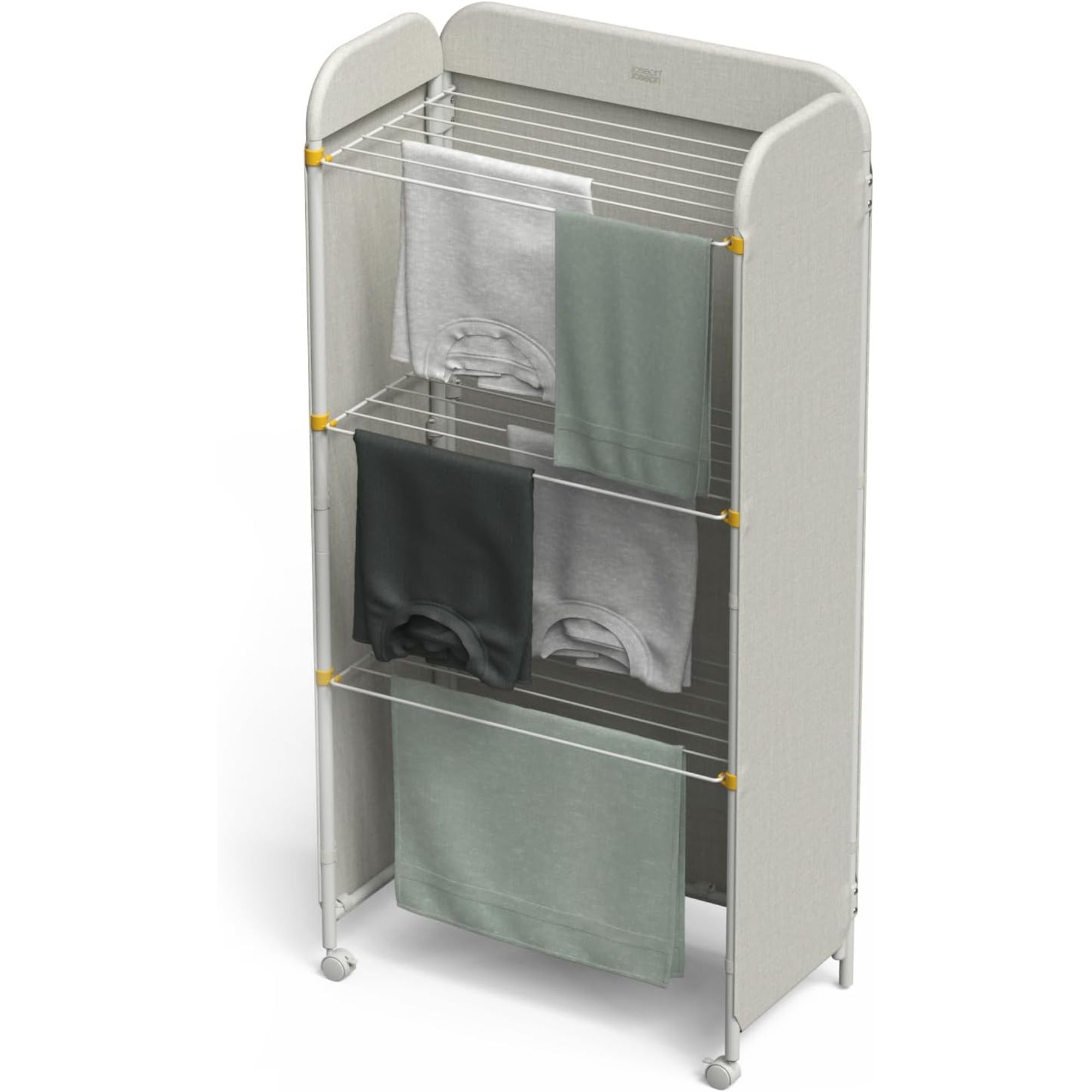
This Joseph Joseph Eclipse indoor clothes airer is perfect for tiny spaces, and even looks good enough to leave up when guests come over, too.
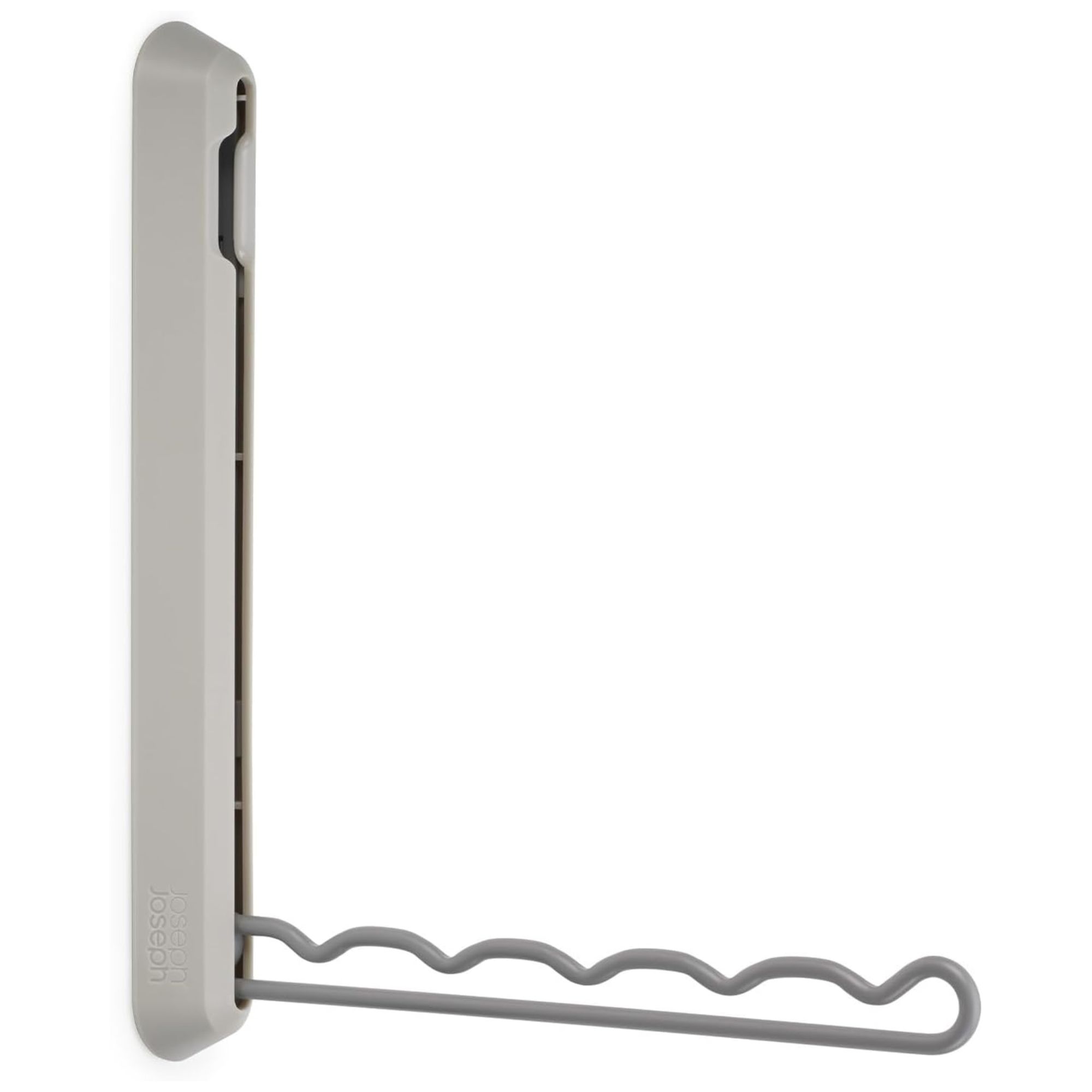
This foldaway hanging rail screws discreetly and securely to the wall or door, is suitable for standard hangers, and keeps clothes separate when drying, allowing air to circulate.
FAQs
How to manage laundry when you have overnight guests
If you're expecting some sudden extra washing, it is important to pick methods that don't risk damaging your guest's laundry. We recommend:
- Pick a light fragrance
- Ensure all towels and bed linens are pre washed
- Check your washing machine's maximum load, and avoid overloading
- Sort laundry carefully so as not to damage guests' clothing
Can you wash backpacks in the washing machine?
For such a simple bit of kit, backpacks can be incredibly difficult to keep clean. The simple answer would be to empty them out and throw them in the washing machine – which you can do for most types, like canvas, nylon, and synthetic models.
However, any leather bags, or ones with lots of embellishments should be hand-washed. The same goes for specialized backpacks, such as those designed for hiking or trekking.
Always check the laundry symbols for the best specific advice for your bag.
How to strip laundry
Laundry stripping is nothing new, but you may be wondering how to do it, to remove a ton of hidden dirt and grime. Here's what we recommend:
- Fill the bathtub with hot water, pour in two parts powdered detergent, one part Borax, and one part washing soda.
- Put the clean towels, linens, or blankets into the water, and stir with the end of a mop. Leave to soak for four to five hours.
- Wring out the linens and wash in the washing machine without any detergent, and with an extra rinse cycle.
Laundry stripping isn't something you want to do regularly, but rather as part of an annual deep clean. Otherwise, it won't be good for the longevity of your clothes, towels and bedding. You should also never strip garments made from natural fibers, like wool, or delicate fabrics like wool or rayon.
Should I wash new clothes and linens?
Yes, laundry and cleaning experts urge, you should wash new clothes and linens. Although it may seem pointless for something that is 'fresh' off the rack or from the store, it turns out these ‘new’ pieces could have been through a lot of hands, or collected a lot of dust and mold spores that we just don't know about.
Of course, the same applies for any thrifted items.
Should I boil my clothes to clean them?
While this might seem like a good idea in theory, unfortunately, boiling your clothes is rarely recommended. It can lead to fabric damage and shrinking, and the heat may even further set stains, worsening the problem.
When is it anti-social to do laundry?
All in all, it's recommended to avoid doing laundry between the hours of 10 pm and 7 am, to ensure a harmonious living environment for your household and neighbors.
For perfect laundry results, make sure to clean a washing machine and clean a washing machine detergent drawer regularly – at least once a month, and learn about how to remove smokey smells from clothing in our dedicated expert-led guide.

Ottilie joined Homes & Gardens in 2024 as the News Writer on Solved, after finishing a Master's in Magazine Journalism at City, University of London. Now, as the Sleep Editor, she spends her days hunting deals and producing content on all things sleep – from mattresses and sheets to protectors and pillows, all of which she tests in her own home. She also has particular expertise in home fragrance, covering everything from candles to reed diffusers.
Previously, she has written for Livingetc and Motorsport Magazine, and also has a Master's degree in English Literature and History of Art from the University of Edinburgh, where she developed a love for inspiring interiors and architecture.
- Tara KingContributing Editor

